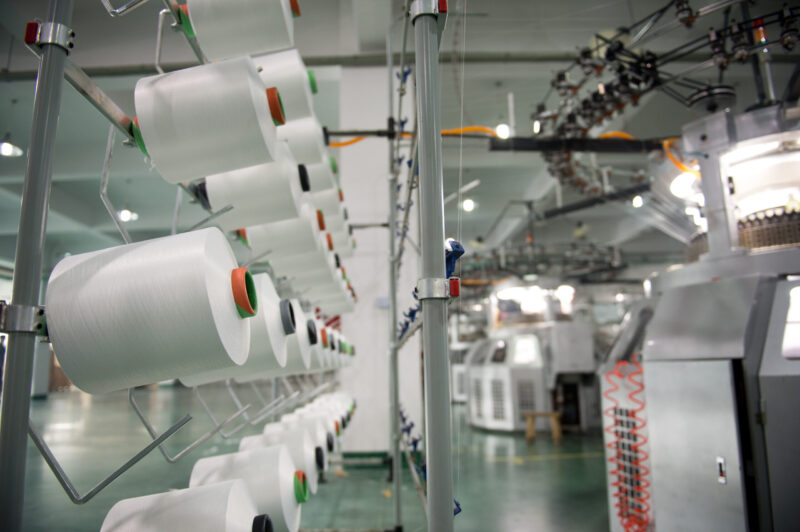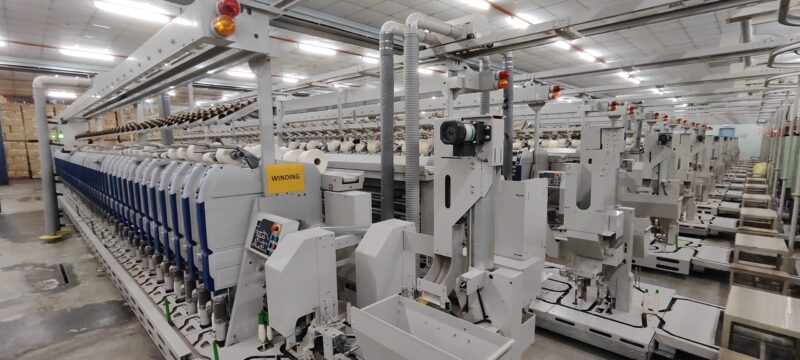
This site
is mobile
responsive

Dressing with Halal Fashion
Malaysia has emerged as a trailblazer and global frontrunner in the Halal industry, characterised by strategic initiatives, proactive government backing and innovative approaches. The nation has established robust Halal certification standards, internationally recognised for ensuring the authenticity and integrity of Halal products. Oversight of the Halal certification process is entrusted to the Department of Islamic Development Malaysia (JAKIM). Furthermore, Malaysia has proactively fostered the development of the Halal industry by establishing the Halal Development Corporation (HDC) in 2006.
Significant government investments in Halal parks, industrial zones, and specialised facilities have facilitated the production, processing, and distribution of Halal products. These infrastructure investments have cultivated a conducive business environment, enabling enterprises to thrive and expand their Halal-related endeavours.
In 2023, Malaysia launched the Halal Industry Master Plan (HIMP) 2030 to harness its strengths for holistic industry development. The Halal industry in Malaysia is projected to expand to USD113.2 billion by 2030, with a GDP contribution of 8.1% by 2025 through the HIMP 2030.1
Halal, derived from Islamic teachings, encompasses dietary laws, ethical, moral, and social considerations that regulate various aspects of life, including food, beverages, finance, cosmetics, and pharmaceuticals. Embraced globally, its principles are driven by a growing Muslim population and heightened awareness, fuelling demand for certified products and services.
In the realm of fashion, Halal principles extend seamlessly to textiles, ensuring fabrics adhere strictly to Islamic guidelines. Halal textiles are sourced devoid of prohibited substances like alcohol and non-Halal animals, advocating practices that uphold ethical standards and avoid cruelty. This commitment spans critical stages such as sourcing, production, design, handling, storage, packaging logistics, and retailing, all maintaining rigorous adherence to Halal standards.
Modest fashion, deeply rooted in Islamic values, forms a significant sector within the fashion industry. Tailored for a global Islamic consumer market, it integrates religious beliefs with contemporary trends, promoting both modesty and modernity. This sector resonates widely, appealing to diverse tastes while steadfastly upholding timeless Islamic values.
The profound connection between modest fashion and Halal textiles underscores their shared foundation in Islamic principles. Halal textiles serve as the cornerstone for creating modest clothing that not only meets modesty requirements but also aligns with wholesome Halal guidelines.

The global Halal market, valued at over USD2 trillion, is among the fastest-growing sectors. Muslim consumers spent USD270 billion on modest fashion in 2017, projected to reach USD402 billion by 2024. The rising Muslim population and ethical fashion awareness present a golden opportunity for Malaysia to lead in Halal Modest Fashion.
In 2020, Muslim consumers spent USD279 billion on fashion, capturing 14% of the global market. Despite a temporary lull, modest fashion investments hold great potential for consolidation and growth.2
Muslim consumers spent USD270 billion on modest fashion in 2017, with the sector projected to grow 4.8 percent annually, reaching USD402 billion by 2024. This growth is driven by a Muslim population expected to reach 2.3 billion by 2023, supported by increased religious devotion, a desire to express cultural identity, and a heightened awareness of ethical and sustainable fashion. Fashion brands have responded to this trend, catering to this burgeoning global market. As a Muslim-majority country, Malaysia should capitalise on this opportunity by producing Halal Modest Fashion wearables, targeting high-value export markets in regions such as the UAE, North America, Europe, the Middle East and Africa, and Southeast Asia.3
Halal compliance standards mandate environmentally and socially responsible practices in the production of goods, aligning with the growing imperative of sustainability in the global economy. This necessitates companies to prioritise sustainable ecosystems alongside profitability.
In the manufacturing and processing of Halal goods, these standards not only address operational sustainability concerns but also ensure comprehensive standards of hygiene and safety across sectors such as medical, transportation, food hygiene, and home furnishings. The Halal assurance system guarantees product safety and hygiene throughout the production chain, integrating core Islamic values like animal welfare, human rights, morality, sustainability, cleanliness, fairness, environmental consciousness, and equitable trade. Embracing Halal textiles not only upholds these Islamic values but also fosters excellence across multiple industries.
From a Malaysian industry standpoint, Halal certification for manufacturers of textiles, apparel, and lifestyle products ensures that all input materials used in the production process are free from any non-Halal ingredients or properties. This involves a meticulous process of acknowledging and certifying materials, tracing them throughout the production stages, and ensuring that the final products are both permissible and pure. This requirement is particularly critical for products that use leather, such as shoes, belts, purses and extends to items like couches and other home furnishings.
Halal certification should cover every stage of the supply chain, from the initial sourcing of ingredients to the final packaging, ensuring strict adherence to Halal principles until the product reaches the end consumer. Alongside sustainability, transparency and traceability are fundamental in the Halal supply chain to facilitate reliable product certification.4
The New Industrial Master Plan (NIMP) 2030 emphasises the critical role of technology and digitalisation in advancing the Halal ecosystem. Automation plays a vital role in maintaining high cleanliness standards, essential for meeting Halal criteria and preventing contamination within facilities. Simultaneously, increased focus on research and development (R&D) within Halal requirements will drive the innovation of cutting-edge textile, apparel, and lifestyle products. Biotechnology enhancements will further streamline certification processes by improving the detection of non-Halal elements. This integration of technology and digitalisation not only ensures Halal certifications but also fosters Industry 4.0, creating significant job opportunities for local talent.
Establishing Halal certification within the textile, apparel, and lifestyle sectors not only enhances product integrity but also catalyses job creation for Malaysian graduates. Developing a robust Halal talent framework is essential to ensure the availability of skilled professionals capable of delivering top-tier services. The Halal Industry Master Plan (HIMP) 2030 outlines strategies to cultivate ‘Halal Champions’ within these sectors. Collaboration between the Ministry of Entrepreneur Development and Cooperatives (MEDAC), agencies like the Cooperative Commission of Malaysia (SKM), SME Corp, and Tekun Nasional is crucial for implementing Halal professional training initiatives. Additionally, partnerships with the Malaysian Qualifications Agency (MQA) and HDC aim to establish comprehensive Halal education programs from certificate to doctoral levels. This concerted effort aims to position Malaysia as a leader in Halal textiles and apparel, driving economic growth and innovation aligned with Islamic values.
The development of the Halal textile industry in Malaysia could stand as a testament to the nation’s commitment to innovation, sustainability, and adherence to Islamic principles. From its beginnings to its current status as a global leader, Malaysia has demonstrated remarkable resilience and foresight in nurturing this vital sector.
Through strategic initiatives, robust infrastructure, and proactive government support, Malaysia has created an ecosystem conducive to the growth and success of the Halal textile industry. As Malaysia looks towards the future, it remains poised to lead in the Halal textile industry, leveraging its strengths in tradition, innovation, and Islamic values to meet the evolving needs of consumers while contributing to the nation’s economic growth and prosperity.
To learn more about investment opportunities in the textiles and textile products industry, please contact the MIDA Building Technology and Lifestyle Division at https://www.mida.gov.my/staffdirectory/building-technology-lifestyle-division/.
2 Federation of Malaysian Fashion, Textile and Apparel (FMFTA), Ramatex Textiles Industrial Sdn. Bhd.
3 2018 Report by Thomson Reuters and Dinar Standard
4 Federation of Malaysian Fashion, Textile and Apparel (FMFTA), Ramatex Textiles Industrial Sdn. Bhd.